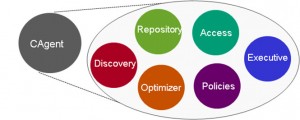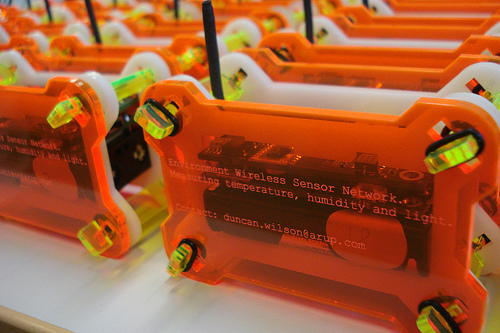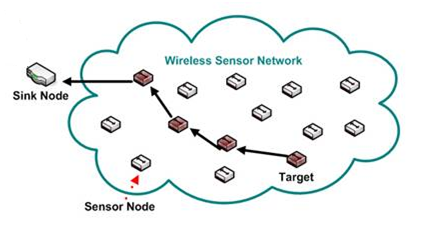The objective of this project is to design and develop a software architecture that will be able to implement cognitive strategies in nodes to conform a CWSN.
The main model this architecture follows is that one proposed in the Connectivity Brokerage (Jan Rabaey, Adam Wolisz, Ali Ozer Ercan, Alvaro Araujo, Fred Burghardt, Samah Mustafa, Arash Parsa, Sofie Pollin, I-Hsiang Wang, Pedro Malagon 2010) and is represented as follows:
In the figure above six modules are shown inside the CAgent (Cognitive Agent). Each of this modules play an specific role inside the Cognitive Module and the work of all of them makes possible the execution of the Cognitive Cycle as defined in Cognitive Networks (Ryan W. Thomas, Luiz A. DaSilva, Allen B. MacKenzie 2005) which exposes that: “A cognitive network has a cognitive process that can perceive current network conditions, and then plan, decide and act on those conditions. The network can learn from these adaptations and use them to make future decisions, all while taking into account end-to-end goals.”.
Related Technologies
- Cognitive Radio
- Wireless Sensor Networks
- Hardware design
- C programming
Task
- State of the art study in cognitive networks
- Requirements definition
- Architecture design
- Hardware design
- Software implementation
- Tests and results
Tutor
Alvaro Araujo <araujo@die.upm.es>
State
In progress






